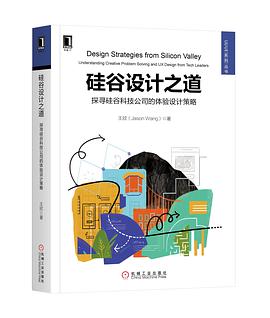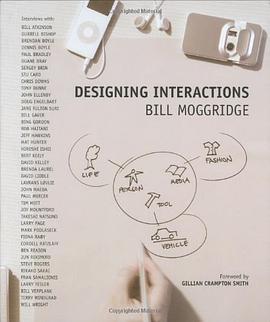UX
The Design of Everyday Things 豆瓣 Goodreads 谷歌图书
作者:
Don Norman
Basic Books
2013
- 11
Even the smartest among us can feel inept as we fail to figure out which light switch or oven burner to turn on, or whether to push, pull, or slide a door. The fault, argues this ingenious—even liberating—book, lies not in ourselves, but in product design that ignores the needs of users and the principles of cognitive psychology. The problems range from ambiguous and hidden controls to arbitrary relationships between controls and functions, coupled with a lack of feedback or other assistance and unreasonable demands on memorization. The Design of Everyday Things shows that good, usable design is possible. The rules are simple: make things visible, exploit natural relationships that couple function and control, and make intelligent use of constraints. The goal: guide the user effortlessly to the right action on the right control at the right time.
In this entertaining and insightful analysis, cognitive scientist Donald A. Norman hails excellence of design as the most important key to regaining the competitive edge in influencing consumer behavior. Now fully expanded and updated, with a new introduction by the author, The Design of Everyday Things is a powerful primer on how—and why—some products satisfy customers while others only frustrate them.
In this entertaining and insightful analysis, cognitive scientist Donald A. Norman hails excellence of design as the most important key to regaining the competitive edge in influencing consumer behavior. Now fully expanded and updated, with a new introduction by the author, The Design of Everyday Things is a powerful primer on how—and why—some products satisfy customers while others only frustrate them.
Designing Interactions 豆瓣
作者:
Bill Moggridge
MIT Press
2006
- 11
Digital technology has changed the way we interact with everything from the games we play to the tools we use at work. Designers of digital technology products no longer regard their job as designing a physical object--beautiful or utilitarian--but as designing our interactions with it. In Designing Interactions, award-winning designer Bill Moggridge introduces us to forty influential designers who have shaped our interaction with technology. Moggridge, designer of the first laptop computer (the GRiD Compass, 1981) and a founder of the design firm IDEO, tells us these stories from an industry insider's viewpoint, tracing the evolution of ideas from inspiration to outcome. The innovators he interviews--including Will Wright, creator of The Sims, Larry Page and Sergey Brin, the founders of Google, and Doug Engelbart, Bill Atkinson, and others involved in the invention and development of the mouse and the desktop--have been instrumental in making a difference in the design of interactions. Their stories chart the history of entrepreneurial design development for technology. Moggridge and his interviewees discuss such questions as why a personal computer has a window in a desktop, what made Palm's handheld organizers so successful, what turns a game into a hobby, why Google is the search engine of choice, and why 30 million people in Japan choose the i-mode service for their cell phones. And Moggridge tells the story of his own design process and explains the focus on people and prototypes that has been successful at IDEO--how the needs and desires of people can inspire innovative designs and how prototyping methods are evolving for the design of digital technology. Designing Interactions is illustrated with more than 700 images, with color throughout. Accompanying the book is a DVD that contains segments from all the interviews intercut with examples of the interactions under discussion. Interviews with:
Bill Atkinson, Durrell Bishop, Brendan Boyle, Dennis Boyle, Paul Bradley, Duane Bray, Sergey Brin, Stu Card, Gillian Crampton Smith, Chris Downs, Tony Dunne, John Ellenby, Doug Englebart, Jane Fulton Suri, Bill Gaver, Bing Gordon, Rob Haitani, Jeff Hawkins, Matt Hunter, Hiroshi Ishii, Bert Keely, David Kelley, Rikako Kojima, Brenda Laurel, David Liddle, Lavrans Løvlie, John Maeda, Paul Mercer, Tim Mott, Joy Mountford, Takeshi Natsuno, Larry Page, Mark Podlaseck, Fiona Raby, Cordell Ratzlaff, Ben Reason, Jun Rekimoto, Steve Rogers, Fran Samalionis, Larry Tesler, Bill Verplank, Terry Winograd, and Will Wright
Bill Atkinson, Durrell Bishop, Brendan Boyle, Dennis Boyle, Paul Bradley, Duane Bray, Sergey Brin, Stu Card, Gillian Crampton Smith, Chris Downs, Tony Dunne, John Ellenby, Doug Englebart, Jane Fulton Suri, Bill Gaver, Bing Gordon, Rob Haitani, Jeff Hawkins, Matt Hunter, Hiroshi Ishii, Bert Keely, David Kelley, Rikako Kojima, Brenda Laurel, David Liddle, Lavrans Løvlie, John Maeda, Paul Mercer, Tim Mott, Joy Mountford, Takeshi Natsuno, Larry Page, Mark Podlaseck, Fiona Raby, Cordell Ratzlaff, Ben Reason, Jun Rekimoto, Steve Rogers, Fran Samalionis, Larry Tesler, Bill Verplank, Terry Winograd, and Will Wright


